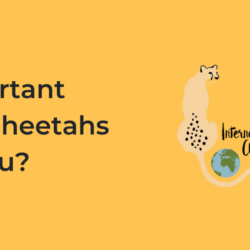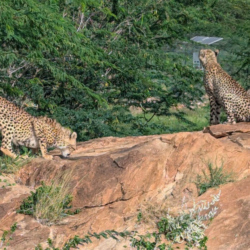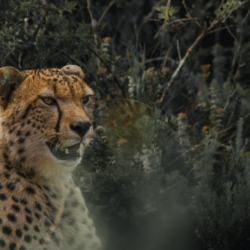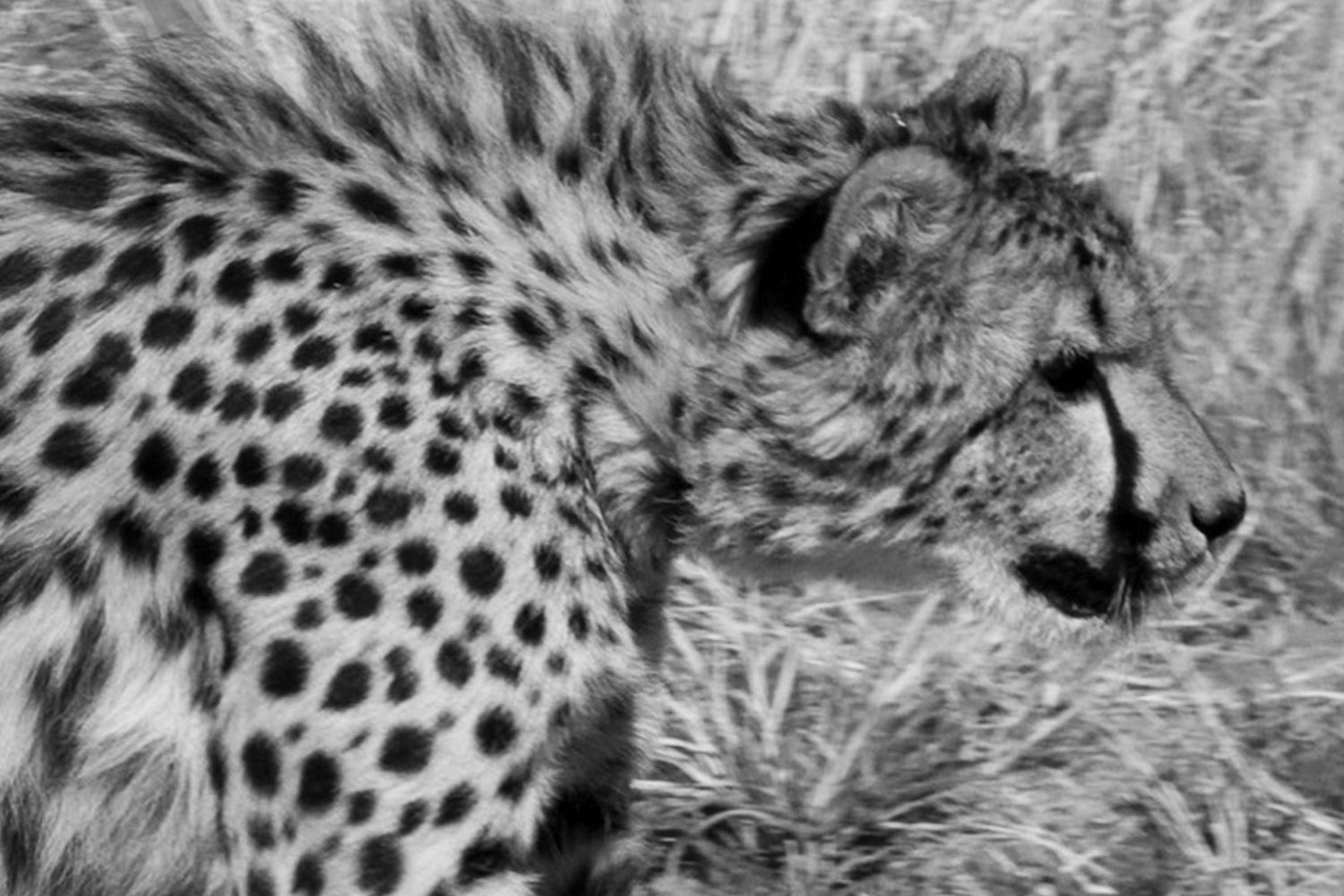CCF in the news: Cheetahs in Kuno – Is India’s effort to reintroduce the big cat facing a crisis?
-

- by 9 August 2023
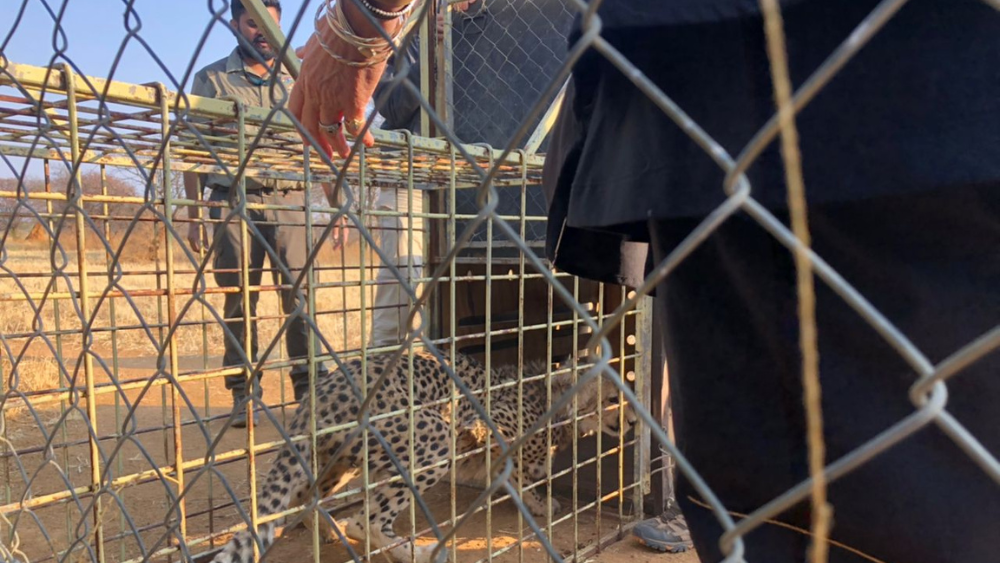
The below article was originally published on BBC online on Sunday 6th of August, 2023, and relates to Project Cheetah – the ambitious cheetah reintroduction programme currently taking place in India. Learn more about CCF’s involvement with the original eight Namibian cheetahs who were relocated here.
Is India’s ambitious project to reintroduce cheetahs, more than 70 years after they were declared extinct, facing a crisis?
Consider this. Twenty cheetahs were relocated from South Africa and Namibia to the 74,200-hectare Kuno national park in the central Indian state of Madhya Pradesh in September last year and February. Since March, six of those cheetahs and three cubs born in the park have died. (The ninth cat died on Wednesday.)
To be sure, cheetah experts say that losing half of the founder population in the initial year of relocation in unfenced parks is a common occurrence. There could be more deaths in the second year, they say.
Based on previous reintroduction experiences in Africa, the founder population of 20 cheetahs in India “will further decline” to five or seven cats “before population recovery is initiated”, according to a report by South African experts, led by Vincent van der Merwe, a cheetah conservationist involved in the mission.
They also expect the first litters with “realistic prospects of survival to adulthood” will likely be born in 2024 – wild cheetah populations are sustained by a small number of fit and fertile females, also called ‘supermums’, and experts reckon only one of the seven wild females relocated to India is likely to be one.
Yet, things don’t seem to be going entirely well in India. South African and Namibian experts involved with the project have expressed “serious concerns” in the way it was being managed. In letters to the Supreme Court of India, which is monitoring the project, they believe the deaths of the cheetahs could have been prevented by “better monitoring of animals and more appropriate and timeous veterinary care”.
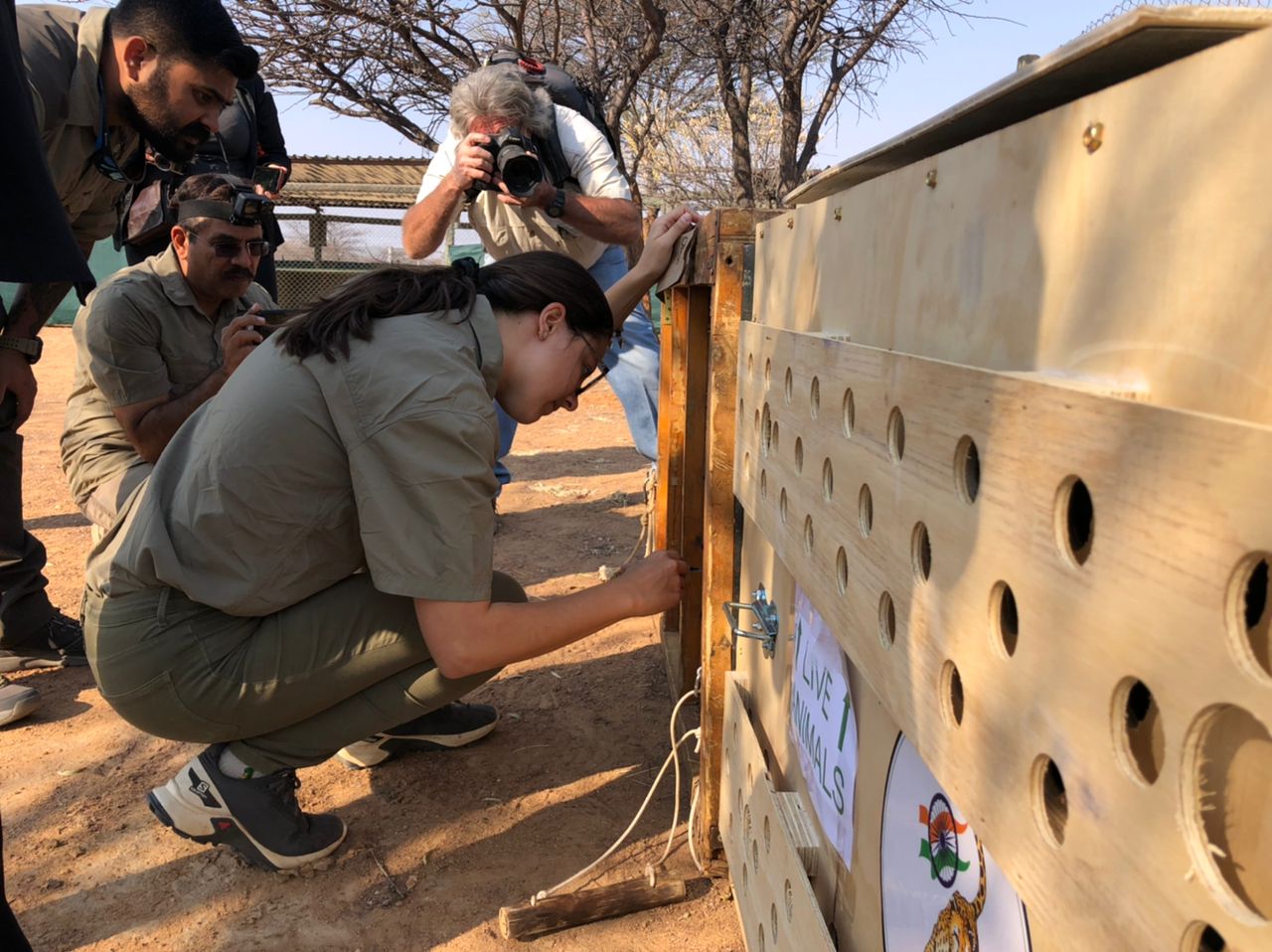
In its letter to the court in July, the Namibia-based Cheetah Conservation Fund (CCF), which has been involved with the project since its inception, said that the first eight cheetah deaths – the post mortem report of the ninth cat has not yet been released – were “avoidable if there were adequate supervision, monitoring and veterinary intervention”.
One of the cheetahs possibly died because of “lack of food for an extended period”, the CCF report says. The letter to the court by the University of Pretoria, representing the South African experts, talks about another casualty – a male cheetah – being attributed by park authorities to an attack by a female cheetah “while sustaining no visible injuries herself”.
“While male cheetahs quite often injure females, we have never observed a case in which a female caused any significant injuries upon a male,” the experts note.
The foreign experts have recommended the cheetahs at Kuno need to be urgently assessed by the vets, their collars checked, findings shared in real time, and communication channels kept open. Also they said more prey species should be moved to Kuno – as “prey numbers in the park are significantly less than when Kuno was originally selected as the first release site”, according to the CCF.

“Detailed and close monitoring is the key to the success of this project. And very close communications to plan for all challenges faced during the reintroduction,” Laurie Marker, executive director of CCF, told me. She said that “closer and faster communication could really assist the success of the project” and that “these are all measures being taken now”.
Not everything is amiss with the project, say the experts. The South African report says the cheetahs have been hunting Indian prey – spotted deer, nilgai, sambar deer, cattle and boars – without trouble. They believe the neighbouring farming communities have responded well to the presence of cheetahs outside of the Kuno park. The presence of nearly 90 leopards in the park has not impacted the introduction – the cheetah is a ‘fragile’ animal and is often targeted by hyenas, leopards and lions.
“Most of the cheetahs are adapting well to the Indian conditions,” says Mr Yadav. “Also so far no cheetah has died due to poaching, hunting, snaring or poisoning because of huge community support from local villages.”
Experts say cheetah reintroductions are painful and arduous – nine of the first 10 attempts at cheetah introduction in South Africa failed and more than 200 cheetahs were lost in the country during that time. But clearly, India has to do better.
Read the full BBC article here.
If you’d like more information on Project Cheetah and its coverage in the media, please check out the links below:
Read Times of India’s articles ‘Supreme Court to Let Govt Experts Steer Project Cheetah‘ and ‘Lone Surviving 5-Month-Old Cub Now Silver Lining for Project Cheetah‘.
Watch an 11-minute interview with CCF Founder Dr Laurie Marker about Project Cheetah.
Related Reading
-
30 October 2024
Meet the Bandit Group: a crew of cheetahs aged 9 to 11 months
